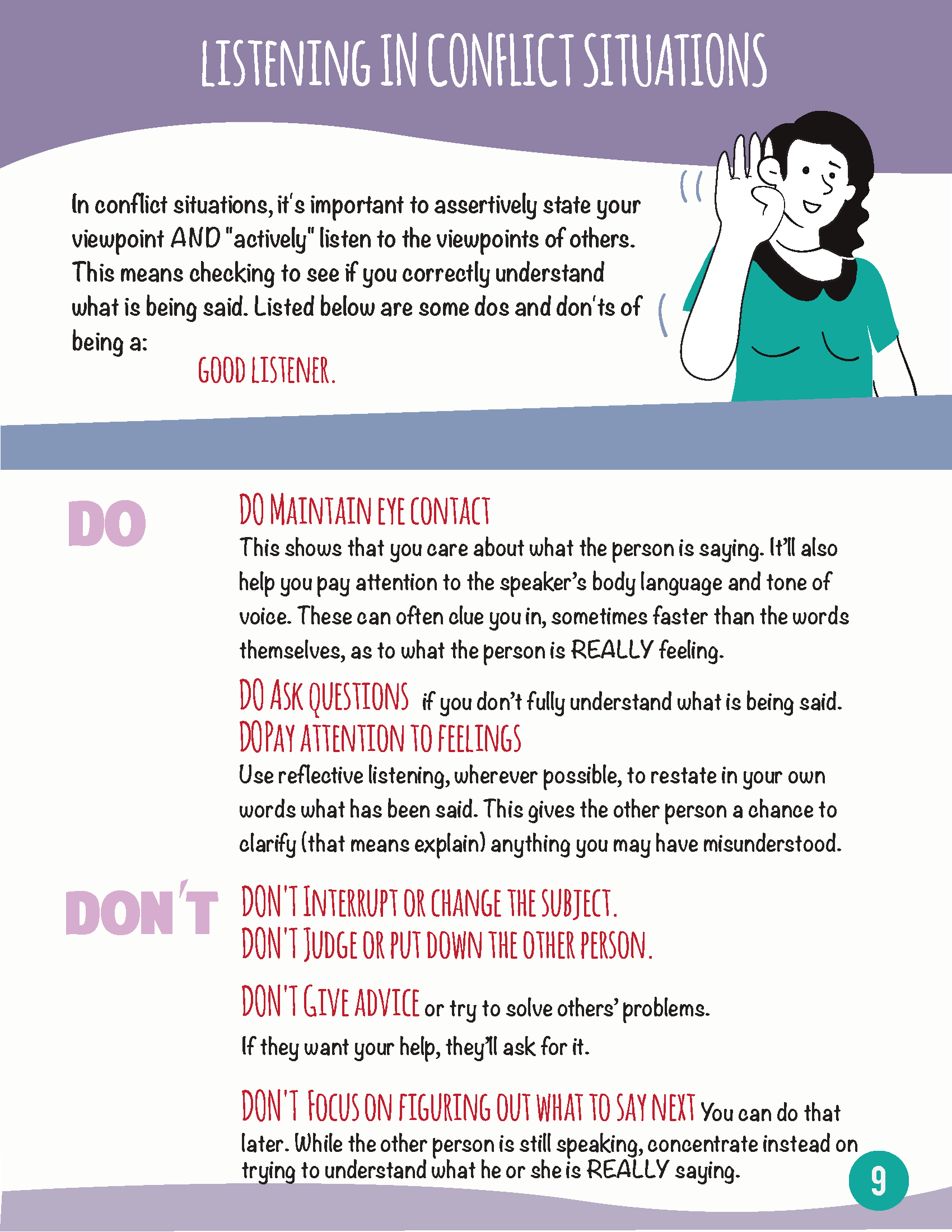
Listening In Conflict Situations.
In conflict situations, it's important to assertively state your viewpoint and "actively" listen to the viewpoints of others.
This means checking to see if you correctly understand what is being said.
Listed below are some dos and don'ts of being a good listener.
Do Maintain eye contact.
This shows that you care about what the person is saying.
It’ll also help you pay attention to the speaker’s body language and tone of voice.
These can often clue you in, sometimes faster than the words themselves, as to what the person is really feeling.
Do ask questions if you don’t fully understand what is being said.
Do pay attention to feelings.
Use reflective listening, wherever possible, to restate in your own words what has been said.
This gives the other person a chance to clarify (that means explain) anything you may have misunderstood.
Don't interrupt or change the subject.
Don't judge or put down the other person.
Don't give advice or try to solve others’ problems.
If they want your help, they’ll ask for it.
Don't focus on figuring out what to say next You can do that later.
While the other person is still speaking, concentrate instead on trying to understand what he or she is really saying.
Lesson Progress
- Intro to Conflict Resolution
- How People Behave in Conflict Situations
- Other Characteristics of Aggressive People
- The ABC'S of Conflict Resolution
- Other Important Tips
- Skill Building "I" Statements
- Skill Building: Reflective Listening
- More Pointers on Talking and Listening
- Listening In Conflict Situations
- Practice Skill Building “I” Statements
- Skill Building: Reflective Listening